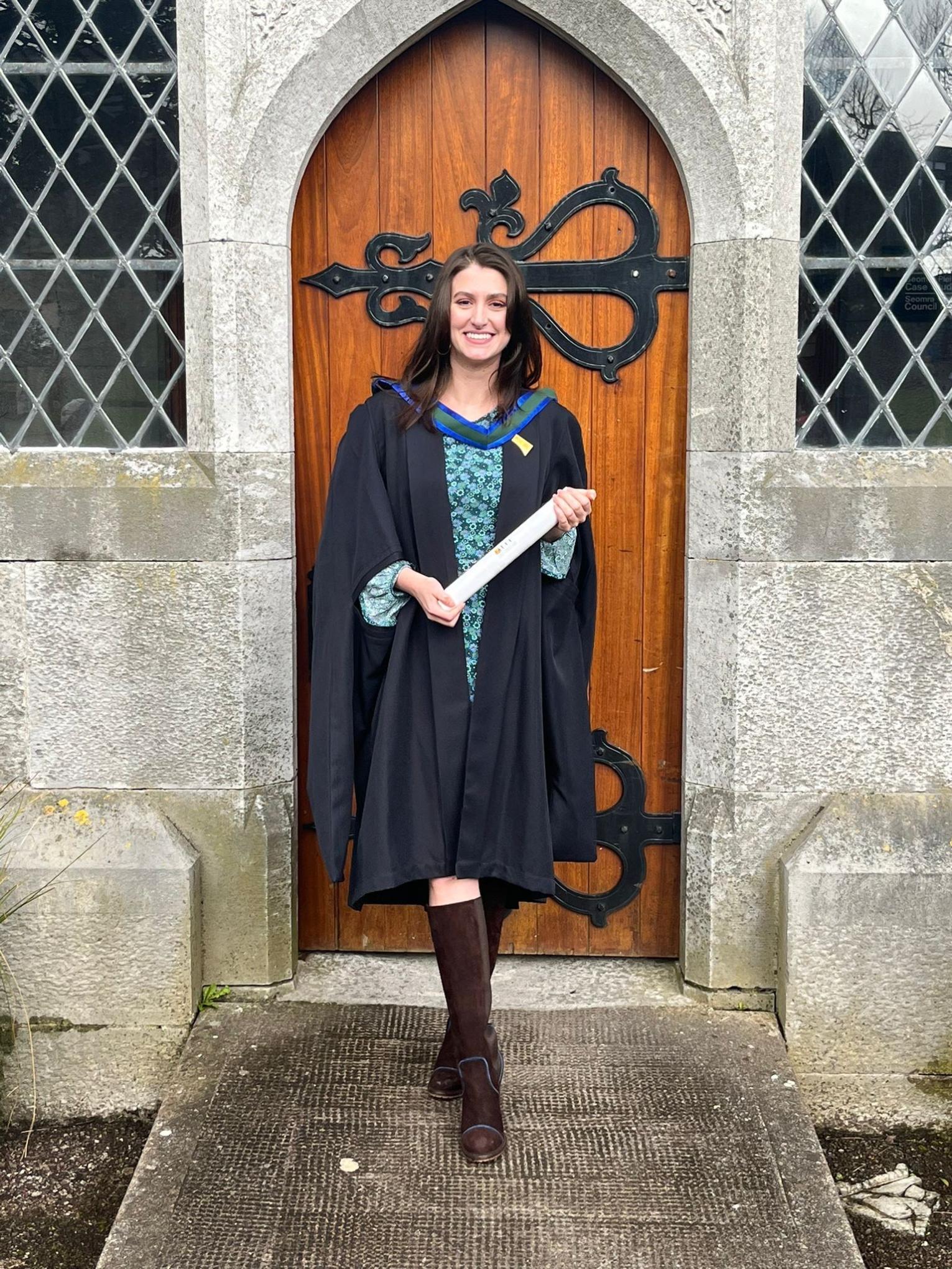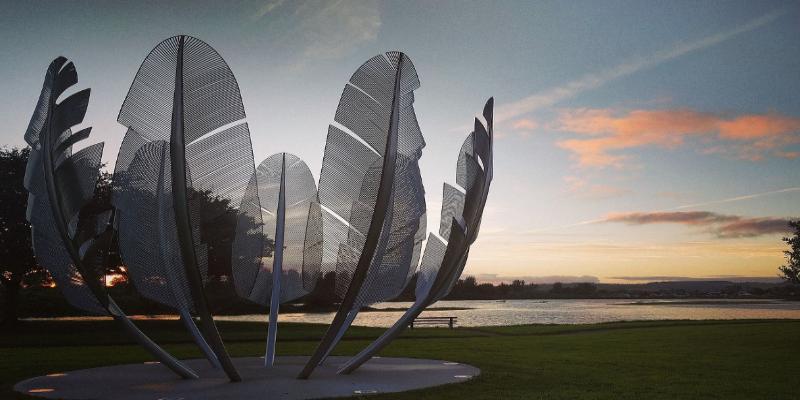| Code | MAANT |
|---|---|
| Duration | 1 Year Full-time; 2 Years Part-time |
| Teaching Mode | Full-time, Part-Time |
| Qualifications | MA |
| NFQ Level | Level 9 |
| EU Fees | Full-time: €10,300
Part-time: €6,200
See Fees and Costs for full details. |
| Non-EU Fees | €23,500 |
| Closing Date | Rolling deadline. Open until all places have been filled. Early application is advised. |
| Non-EU Closing Date | Open until all places have been filled or no later than 15 June. Early application is advised. |
| Start Date | 7 September 2026 |
Course Outline
Anthropology, as a comparative and international discipline, is the most fundamental and encompassing of the Humanities, Arts, and Social Science disciplines. The central premise of our programme is to bring the insights of the anthropological study of culture, society and politics to bear on contemporary global and local challenges. From the richness & diversity of human forms of life both historically and cross-culturally, to the contemporary social, cultural and political problems and issues facing the world.
Our strength rests on two pillars: methods in ethnographic research, and, cultural and social theory. The programme employs research-led classroom pedagogy combined with an exciting offering of intensive summer and winter schools such as the unique Atlantic Anthropological Workshop and with award winning research centres such as MEWSC, the SENSA Lab and the CyberSocial Research Lab and fieldwork placements with our partner institutions in regions aligned with area expertise of our staff such as Ireland, India, Japan, Latin America, Eastern and Southern Europe.
See our website for more information: https://www.ucc.ie/en/anthropology/
We offer our students a unique opportunity to gain intercultural competencies as well as professional and transferable skills. It will appeal to those of you with a strong international and intellectual outlook who seek a deeper understanding of the cultural, political and social challenges of the 21st Century.
Modules
Part I (Full-time) (60 credits)
Students complete core modules to the value of 30 credits and select 30 credits from the elective modules. Our students are strongly encouraged to attend one of the Summer/Winter Schools and can take up to 10 credits from those on offer in a given year.
Core Modules
- AY6013 Anthropology: Paradigms & Theories (10 credits)
- AY6015 Ethnography, Practice and Writing (10 credits)
- AY6016 Rereading the Anthropological Classics (10 credits)
Summer School/Winter School Elective Modules
- AY6017 Atlantic Anthropological Workshop (10 credits)
- AY6012 Anthropology Research Laboratory (5 credits)
Standard Elective Modules
- AY3002 Dark Heritage: why we remember contested and difficult pasts (5 credits)
- AY3003 Semiotics and Anthropology (5 credits)
- AY6018 Anthropology and History: Archives, Materiality and Memory (10 credits)
- AY6025 Anthropology and Aesthetics of Performance: Ritual and Theatre (10 credits)
- MU6042 Ethnography of Music (10 credits)
- MU6043 History and Theory of Ethnomusicology (10 credits)
- SC6631 Sociology of Sustainable Development (10 credits)
- SC6639 Feminist Epistemologies: Feminisms, Sexuality and Society (10 credits)
- SC6642 Social Theory and Climate Justice (10 credits)
- SC6644 Im/mobilities: forced migration and belonging (10 credits)
- SC6608 Social and Sociological Theory (10 credits)
- SC6645 Alcohol and Society: Use, Regulation and Harms (10 credits)
Part II (30 credits)
Part-time Option
Students take 90 credits over two parts: 60 credits in Part I and modules to the value of 30 credits in Part II. See the Academic Programme Catalogue for the current part-time module options.
Fieldwork Placement
The Fieldwork Placement takes place in one of our partner universities and will be jointly supervised by a team of two supervisors, one based at UCC and one in the partner university. The supervisor in the partner university will oversee and facilitate the practical aspects of the fieldwork project.
Students will be exposed to international perspectives and possibilities facilitated in particular through summer, winter-schools and fieldwork placements.
The fieldwork placement will offer a unique opportunity for Irish students to engage in ethnographic practice at a range of institutions in India, Latin America, and Europe, and for international students to conduct ethnographic research in Ireland.
The international local and global experience of transcultural learning and communication offers unique academic think-tank and creative spaces which foster global empathy through local engagement.
Academic Programme Catalogue
See the Academic Programme Catalogue where you can search for the complete and up-to-date content for this course. Note that the modules for all courses are subject to change from year to year. For complete descriptions of individual modules, see the Book of Modules.
Course Practicalities
The MA Anthropology programme, on the one hand, employs conventional classroom practice and pedagogy but on the other hand, transgresses and broadens it through our schools, and fieldwork placements with partner institutions both nationally and internationally affording students the opportunity for first hand experiences of fieldwork, networking amongst peers at other institutions and amongst leading scholars from Europe, USA and farther afield.
Our Summer and Winter Schools, as well as fieldwork placements, offer unique spaces for free and unconventional/alternative thinking and educational practice.
The MA Anthropology programme may be taken full-time over 12 months or part-time over 24 months from the date of first registration for the programme. Part-time students take at least the core modules in year one and the remainder required for credit over years one and two.
Why Choose This Course
Why UCC: The MA in Anthropology at UCC is an innovative and unique programme provides students with theoretical depth and practical experience in research with additional international opportunities. The programme is well known for its Atlantic Anthropological Workshop now going into its 6th edition for 2026. Other universities’ faculty and postgraduates participate in this workshop and it provides scholars from many countries and institutions a chance to meet, network, hear from cutting edge anthropological researchers ensuring UCC students have a front seat to latest academic work, see the main website for more information on this exciting workshop which also features in the (33:2) 2025 Forum section of the journal Social Anthropology/Anthropologie sociale.
Graduates do exceptionally well in gaining PhD scholarships as well as going directly into the job market and the anthropology team is here to help student’s realise their ambitions. Every year we revisit our programme structure and content striking to innovate and improve on pedagogy and experiences for students and now offering a new winter school elective in Italy through module AY6012.
Why Anthropology: As a discipline, anthropology is uniquely well-placed to provide an analysis of our contemporary local and global situation: Recent and ongoing political and economic crises bring into sharp relief the need to forefront pluralist anthropological perspectives and expertise to the benefit of the social sciences and public life. Such a programme will offer the increasing number of international students with personal lived experiences of migration, conflict and war, a vehicle with which to voice their own thoughts and experiences to an academic standard.
The classroom content, elective workshops and the subsidized fieldwork placement make this a very attractive programme with a unique profile not just in Ireland but internationally.
Placement or Study Abroad Information
The placement will be designed by the two supervisors in consultation with the student before they depart for fieldwork. Students will go on fieldwork placement for one to three months between the months of April and August. The placement will be monitored by a UCC academic mentor plus a local mentor if the fieldwork is undertaken at a non-European partner university.
A student stipend will be provided to each student going on fieldwork to help with expenses subject to full payment of course fees and normal financial regulations.
The fieldwork placement allows you to engage in ethnographic practice at a range of institutions in India, Latin America, and Europe, and for international students to conduct ethnographic research in Ireland.
The international local and global experience of transcultural learning and communication offers unique academic think-tank and creative spaces which foster global understanding and empathy through local engagement.
For a student to go on fieldwork placement pertinent conditions must be satisfied by the Programme Directors including but not limited to linguistic requirements, political stability, health concerns, travel and health insurance undertaken, and logistical practicalities. Safety of our students is paramount.
Skills and Careers Information
Anthropologists can be universally employed as intercultural competency, socio-cultural reflexivity and cultural literacy represent key social and educational skills in contemporary societies. Identified career paths are
- Research
- Education
- Higher Education
- International and national politics
- Journalism
- International Organisations (UN, UNESCO etc)
- NGO sector
Requirements
A candidate for this MA programme must normally hold a Second Class Honours Grade I in a primary honours degree (NFQ, Level 8) or equivalent, in Anthropology, or a cognate subject in social/cultural sciences (Sociology, Criminology, Management, Development, Political Science, Languages, Social Sciences, Classics, Comparative Literature, Cultural Studies, Study of Religions) or equivalent international qualification.
Candidates who hold a Second Class Honours Grade II in a primary honours degree (NFQ, Level 8) may also be considered under Recognition of Prior Learning (RPL) subject to review by the Board of Studies.
As part of the application process, all applicants will be required to submit:
- A supporting statement which should outline your intellectual biography and your reasons for pursuing postgraduate studies in Anthropology.
- Prospective applicants may be required to present themselves for an interview. The interviewing of overseas applicants may be conducted online.
For Applicants with Qualifications Completed Outside of Ireland
Applicants must meet the required entry academic grade, equivalent to Irish requirements. For more information see our Qualification Comparison page.
International/Non-EU Applicants
For full details of the non-EU application procedure visit our how to apply pages for international students.
- In UCC, we use the term programme and course interchangeably to describe what a person has registered to study in UCC and its constituent colleges, schools, and departments.
- Note that not all courses are open to international/non-EU applicants, please check the fact file above. For more information contact the International Office.
English Language Requirements
Applicants who are non-native speakers of the English language must meet the university-approved English language requirements. Visit our PG English Language Requirements page for more information.
Fees and Costs
The EU fee for this course is Full-time: €10,300 Part-time: €6,200 .
The Non-EU fee for this course is €23,500.
Postgraduate EU and International Fees 2026/2027
See our Postgraduate EU and Non-EU (International) Fee Schedule for the latest information.
Deposits
If your course requires a deposit, please note that booking fees and deposits are non-refundable in all cases.
How can I pay?
See different options on our How Do I Pay My Fees? page.
Any questions? See the 'Contact Us' section on the Fees Office page.
How To Apply
1. Check dates
Check the opening and closing dates for the application process in the yellow fact file boxes at the top of this webpage. The UCC online application portal usually opens around mid October.
2. Gather documents
Scanned copies of supporting documents have to be uploaded to the UCC online application portal and include:
- Original qualification documents listed on your application, including transcripts of results from institutions other than UCC.
- Any supplementary items requested for your course, if required.
3. Apply online
Apply online by clicking the red 'Apply Now' button below. Note most of our courses have a non-refundable €50 application fee.
Any questions? Use our web enquiry form to contact us.
Additional Requirements (All Applicants)
Please note you will be required to provide additional information as part of the online application process for this programme. This will include the following:
- You may enter the details of professional or voluntary positions held. We strongly encourage you to complete this section with all relevant work experiences that will support your application.
- Please describe your motivation and readiness for this programme.
- Please detail your computing/technical/IT skills.
- Please upload your CV.
- Please enter the names and email addresses of two referees. At least one referee should be an academic referee.
N.B. We may also require prospective applicants to present themselves for an interview. The interviewing of overseas applicants may be conducted online.
All other required supporting documentation (e.g. evidence of Non-UCC undergraduate/postgraduate qualifications) must be uploaded via the applicant portal.
The closing date for non-EU applications is Open until all places have been filled or no later than 15 June. Early application is advised.
Apply Now



-2260x2397.jpg)